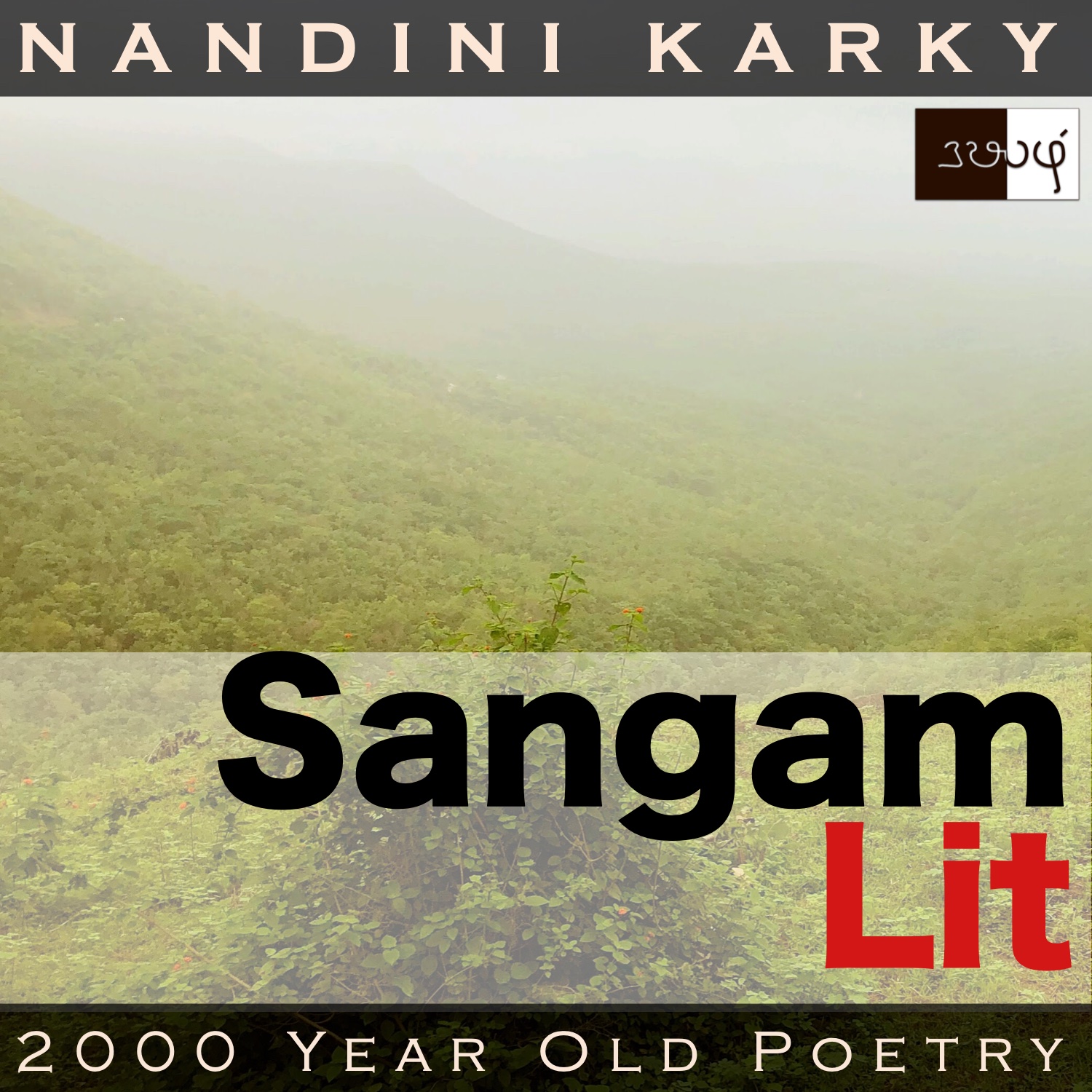Podcast: Play in new window | Download
Subscribe: Apple Podcasts | Spotify | Amazon Music | Android | iHeartRadio | TuneIn | RSS | More

In this episode, we learn of how the changing season sings a song of yearning, as depicted in Sangam Literary work, Kurunthogai 68, penned by Alloor Nanmullaiyaar. Set in the mountains of ‘Kurinji’, the verse speaks in the voice of the lady to the confidante, expressing her inability to bear with the man’s parting.
பூழ்க் கால் அன்ன செங் கால் உழுந்தின்
ஊழ்ப்படு முது காய் உழையினம் கவரும்
அரும் பனி அற்சிரம் தீர்க்கும்
மருந்து பிறிது இல்லை; அவர் மணந்த மார்பே.
Swirling mists seem to envelop this verse! In the opening words ‘பூழ்க் கால்’, we see the three pronged, sticky ‘quail’s legs’. Thereafter, we glimpse at ‘செங் கால் உழுந்து’ or the ‘red-stemmed black gram plant’. This is followed by ‘உழையினம்’ or ‘a group of deer’. Interestingly, when I searched for the collective noun for ‘deer’, in addition to the well-known ‘herd’, the word ‘mob’ is also used. Isn’t it a curious way to refer to these gentle creatures? The core of the verse shines in the words ‘அரும் பனி அற்சிரம்’ meaning ‘the harsh cold of the early dew season’, referring to the season of ‘mun pani’ falling in the months of December and January. Ending with the words ‘அவர் மணந்த மார்பே’ meaning ‘his chest that embraced me’, the verse echoes with the melody of a melancholic heart!
Little quails and red crops seem to hold big things within! The context reveals that the man and lady had been leading a love relationship, when the man parted from the lady to gather wealth for their wedding. After many days pass by, the lady turns to her friend and says, “The mature, full-grown pods of the black gram, with red stems akin to a quail’s legs, are stolen by a herd of deer in the severe cold of the misty, winter season, and there can be no cure for it other than his embracing chest!”. With these words, the lady laments to the confidante about the man’s absence and tells her that the only way to bear through that cold season was to be by the man’s side.
There’s no mistaking the angst in the heart of this pining lady, but what more have we gleaned from this verse? The lady, as in the case in many Sangam poems, does not start talking about how she feels within. Instead she looks at the world around her. Here, she sees red-stemmed black gram plants in full bloom, and the red legs of this plant make her think of a quail and its feet, a plant-animal connection that Sangam folks seem to have been experts at! Then, she spots a ‘mob of deer’ and those gangsters seem to be stealing the ripe pods of the black gram plant. As we have seen in other verses, there must be a reason for this description of a scene from nature. And it turns out, the lady has been talking about this only to mention the season in which these events are unfolding. As we have seen in Natrinai 89, the black gram plant is said to bloom in the ‘early dew season’ in the months of December and January, corresponding to ‘winter-irrigated varieties’ in contemporary agriculture of Tamilnadu. With that reference to the black gram plant and its mature pods, the lady brings before our eyes the harsh winter.
After all, it’s just a season – part and parcel of change! Why should it affect the lady so? It’s because she was separated from her man and it was believed to be an immense sorrow to be parted away during those months of winter. That separation ends up as a disease in the lady and like an expert physician, the lady diagnoses herself and says the only prescription for that affliction is to embrace her man’s chest! Remarkable how, in a few lines of verse, seasons, crops, and animals of ancient Tamil land illuminate our mind with knowledge about the past and at the same time, touch our hearts with this tale of love!




Share your thoughts...